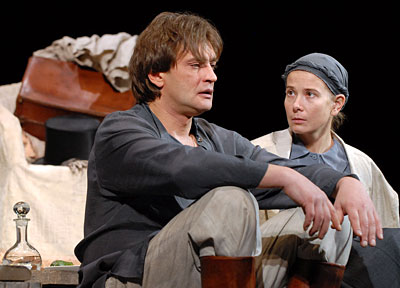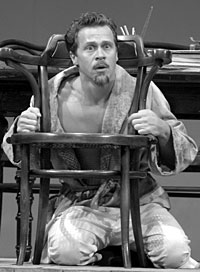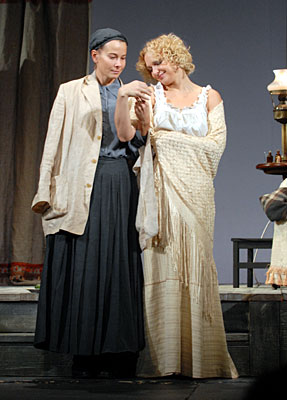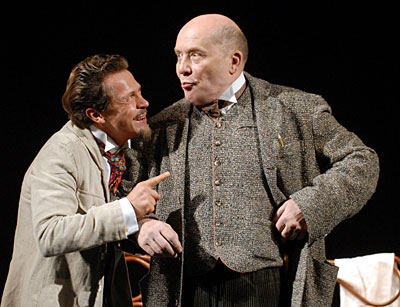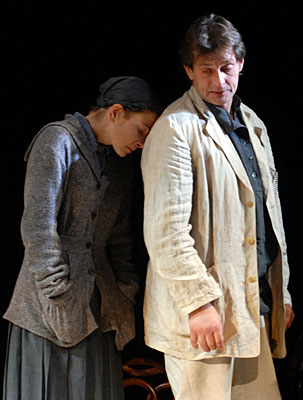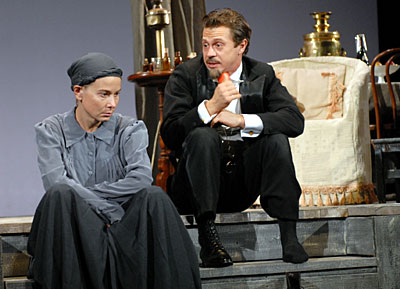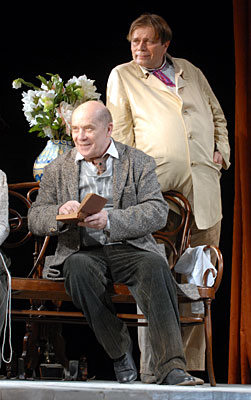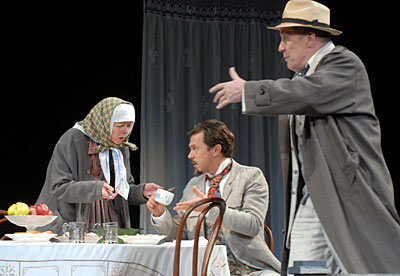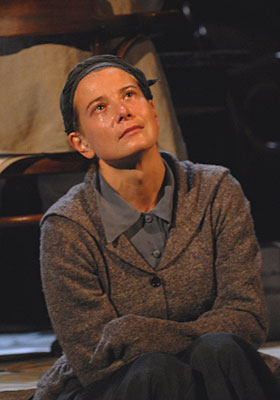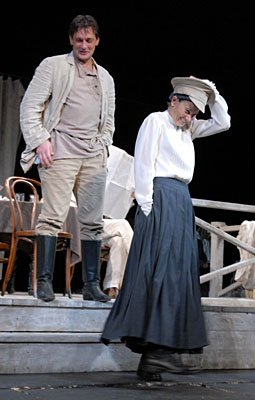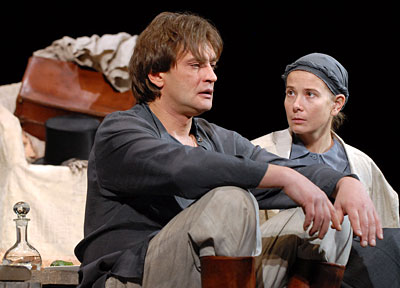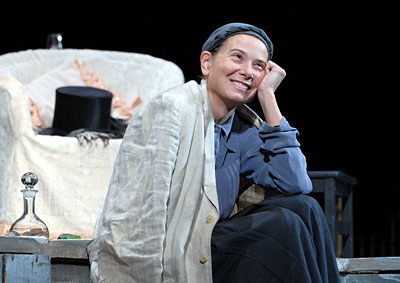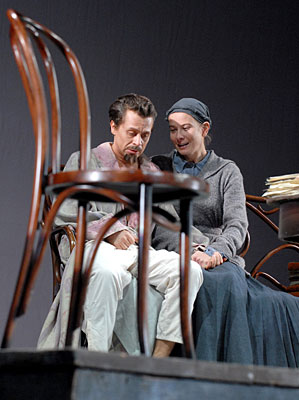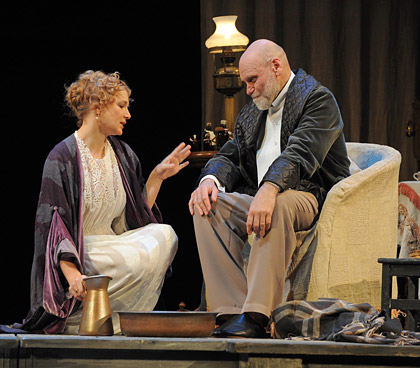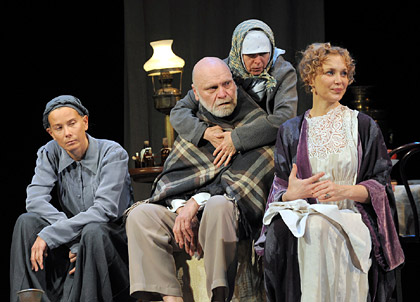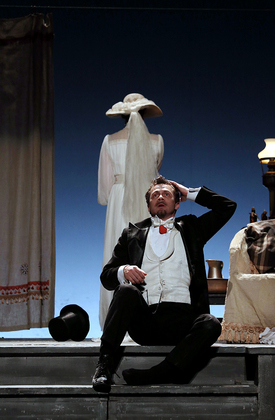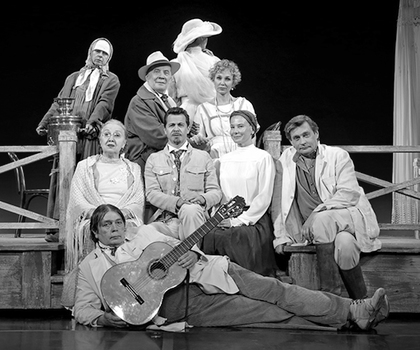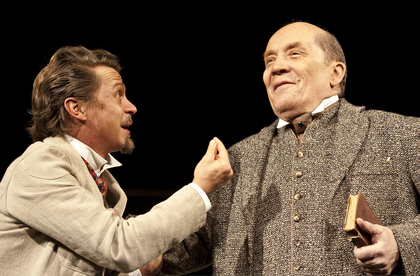Whenever I’m asked why it should be “Uncle Vanya” or why I think Chekhov makes so much sense nowadays, I can’t help thinking with sadness that before too long journalists will be asking Riccardo Muti why he finds Mozart so special or inquire Gergiev of any particular reasons for his choice of Shostakovich 9th Symphony.
Chekhov is a Symphony. The Symphony of life that is deficient in tragic happenings, fantastic breaks-through or noble impulses. It is the kind of life where there is no place for champions, to quote Chekhov, ‘the dull and uneventful life of a philistine...’ One can’t watch the moon set behind the horizon. One can’t possibly watch a tree wither away. Likewise we are unable to observe life leading to death. Yet we know that the moon does set down, the leaves of a tree do turn yellow and fall off and that the life of any man does come to and end. As an artist Chekhov was like no one else in the history of arts capable of watching life intently. In point of fact he was the founder of the modern drama that came up to take the place of the 19th century’s romantic tragedy.
It is simple to love the heroes who are brilliant and whose hearts are not broken by disasters or by life as such. It is much harder to be partial to the mediocre man in the street incapable of performing feats of velour. But it is precisely these unassuming characters Chekhov so strongly feels for because he is only too well aware that every life is absolutely unique and frightfully short. Like it once escaped Marina Tsvetaeva’s lips, ‘you must love me for one day I shall die...’ Chekhov’s notion of theatre is very precise: people on stage are dining, having teas while their lives are being ruined
Andrey Konchalovsky
In this production bitter humor slips out every now and then. The pace of the performance is thoroughly checked and precise. Konchalovsky explains: “In Chekhov pauses are more important than words”. The actors (including Pavel Derevyanko, Yulia Vysotskaya and Alexander Domogarov) are profoundly aware of their characters’ joy and anguish. Konchalovsky’s production of “Uncle Vanya” can be hardly called experimental or avant-garde, but without doubt it exemplifies perfect directorial style and high class of performance. A disputable issue is whether it was necessary to use projections of photographs and videos for they seem to be disrupting a coherent perception of the play. However the emotions and personalities of the characters clearly surpass the abstract analysis and the purely technical aspects.
Anieze Bellato, «Il Tamburo Di Cattrine»
After each episode stage hands come out from the wings to rearrange the furniture and the assistant director, a woman in black trousers and T-shirt is watching them work. Afterwards she casts a glance toward the lighting operator booth and signals to start the next scene. This seems to be the moment when the true meaning of this production begins to take shape. We see the Chekhovian people who are no longer existent. These people dreamed that their descendents will live more sensible and well-ordered lives. A hundred years later the theatre materializes their dreams and hopes. But we who live today are only too well aware that nothing has changed. And our offsprings in another hundred years from now will see how futile our efforts were to change our lives.
Natalia Kaminskaya, «Kultura»
